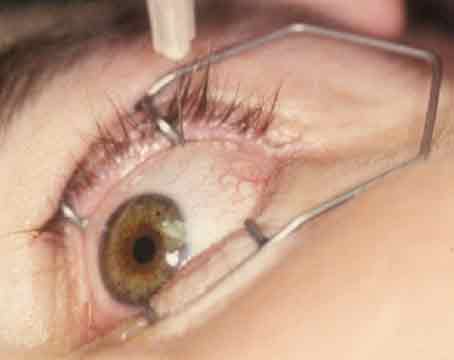A: Medicare utilizes the term "unlabeled" as opposed to off-label. The Medicare Benefit Policy Manual (MBPM), Chapter 15, §50.4.2 states, "An unlabeled use of a drug is a use that is not included as an indication on the drug's label as approved by the FDA."
The Food and Drug Administration approval process determines the safety and efficacy of a drug for a specific indication. Manufacturers include FDA approval information on their package insert providing uses, dosages, possible adverse reactions and recommends precautions with its use.
 |
Q: Does Medicare forbid physicians to use drugs for indications not approved by the FDA?
A: No, Medicare does not stand in the way of medical advancements. However, several issues present when a physician elects to use a drug in an unlabeled fashion. For example, is it safe; is it medically reasonable; and is there any evidence of studies done for this indication?
The agency may even cover such uses. The MBPM, Chapter 15, §50.4.2 states, "… FDA approved drugs used for indications other than what is indicated on the official label may be covered under Medicare if the carrier determines the use to be medically accepted, taking into consideration the major drug compendia, authoritative medical literature and/or accepted standards of medical practice."
Several criteria must be met for coverage to be considered. They are:
1. Were standard, accepted treatments, including approved drugs, tried or contraindicated before considering a drug for an unlabeled use?
2. Do any of the major drug compendia and related peer-reviewed scientific articles support the unlabeled use?
3. Do any specialty society publications recommend this unlabeled use?
4. Is this unlabeled use an accepted standard of medical practice?
5. Is authoritative medical literature available to support this use? Are the level of evidence, endpoint measured, and number of patients adequate (MCM 2049.C.3)?
The specific, suggested drug compendia to use as references include: United States Pharmacopeia Drug Information (USPDI); American Hospital Formulary Service Drug Information; and American Medical Association Drug Evaluations. Peer-reviewed medical literature would be published in the following or similar publications: American Journal of Medicine; the Journal of the American Medical Association; and the New England Journal of Medicine.
Q: If Medicare deems unlabeled use of a drug noncovered, will it pay for the method of delivery (i.e., injection)?
A: No. MBPM, Chapter 15, 50.4.2, states, "If a medication is determined not to be reasonable and necessary for diagnosis or treatment of an illness or injury according to these guidelines, the carrier excludes the entire charge (i.e., for both the drug and its administration)."
Other services associated with the delivery of an unlabeled medication may also be excluded from coverage. The same citation continues "… Also, carriers exclude from payment any charges for other services (such as office visits) which were primarily for the purpose of administering a noncovered injection (i.e., an injection that is not reasonable and necessary for the diagnosis or treatment of an illness or injury)…"
Q: If Medicare denies coverage, may the patient be held responsible?
A: Yes. Patients should be made aware of their financial liability with an Advanced Beneficiary Notice. Utilize the ABN whenever you believe that Medicare is likely to deny your claim for an item or service you are planning to provide. Always get it signed in advance, before providing the item or service. Submit your claim with modifier -GA appended to the appropriate CPT or HCPCS code.
By signing an ABN, the Medicare beneficiary acknowledges that he has been advised that Medicare will probably not pay for the item or service and agrees to be responsible for payment either personally or through another insurance. Medicaid qualifies as "other insurance," so get an ABN even for Medi/Medi patients.
No copy of the Medicare denial is required in order to collect from the patient. You may collect from the patient at the time of service.
Q: If we do not intend to collect from the patient and don't ask him to sign an ABN, would we file our claim differently?
A: Yes. Instead of modifier GA, utilize modifier GZ, (item or service expected to be denied as not reasonable or necessary.) This informs the carrier that this service is probably not covered under Medicare guidelines and no ABN was signed. Append the modifier to the CPT and HCPCS codes. Claims filed this way are informational only and the patient cannot be expected to pay if or when Medicare denies the claim.
Q: What other information should be provided and documented in the medical record when an unlabeled medication is used?
A: In addition to the financial discussion that accompanies the unlabeled use of a drug, the consent form for these procedures is unique. In addition to the conventional language in an informed consent addressing risks, benefits and alternatives to the procedure, the consent form should clearly state that the drug is an unlabeled use. It also should explain in easy to understand terms the meaning of an unlabeled use.
Q: Will Medicare change its attitude towards coverage without a formal change through the FDA approval process?
A: It's possible. If the medication's unlabeled's use becomes an accepted standard of medical practice and all other coverage criteria are satisfied, then Medicare may consider a shift towards coverage.
Ms. McCune is vice president at Corcoran Consulting Group. Contact her at DMcCune@corco ranccg.com.




